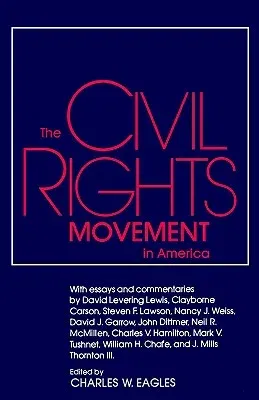The Civil Rights Movement in AmericaPaperback, 1 September 1986

Qty
1
Turbo
Ships in 2 - 3 days
In Stock
Free Delivery
Cash on Delivery
15 Days
Free Returns
Secure Checkout
Part of Series
Chancellor Porter L. Fortune Symposium in Southern History
Part of Series
Chancellor's Symposium Series
Print Length
204 pages
Language
English
Publisher
University Press of Mississippi
Date Published
1 Sep 1986
ISBN-10
0878052984
ISBN-13
9780878052981
Description
Product Details
Book Format:
Paperback
Country of Origin:
US
Date Published:
1 September 1986
Dimensions:
21.67 x
14.22 x
1.45 cm
ISBN-10:
0878052984
ISBN-13:
9780878052981
Language:
English
Location:
Jackson
Pages:
204
Publisher:
Weight:
281.23 gm

